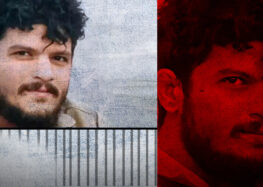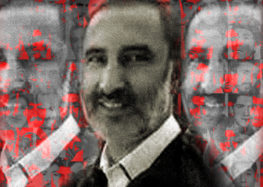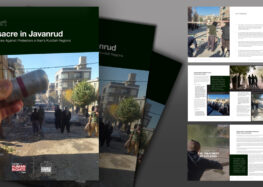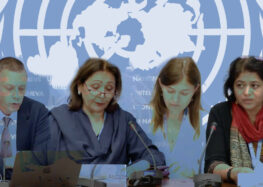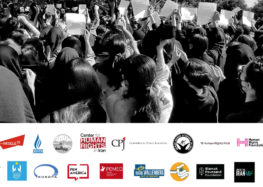UN Stresses Execution of Child Offenders in Iran “Absolutely Prohibited” by International Law
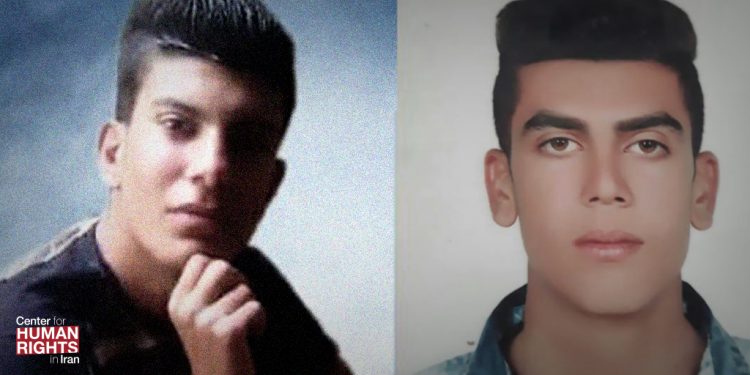 UN, GENEVA (3 May 2019) – The execution of two 17-year-old boys in Iran on charges of rape and robbery, after a trial that appears to have seriously breached fundamental due process guarantees, is deplorable, UN High Commissioner for Human Rights Michelle Bachelet said on Friday. She, once again, urged the authorities in Iran to ensure that executions of child offenders are immediately halted.
UN, GENEVA (3 May 2019) – The execution of two 17-year-old boys in Iran on charges of rape and robbery, after a trial that appears to have seriously breached fundamental due process guarantees, is deplorable, UN High Commissioner for Human Rights Michelle Bachelet said on Friday. She, once again, urged the authorities in Iran to ensure that executions of child offenders are immediately halted.
“The prohibition of executions of child offenders is absolute under the International Covenant on Civil and Political Rights and under the Convention on the Rights of the Child,*” Bachelet said. “Iran is party to both human rights treaties and obliged to abide by them. These two cases are particularly outrageous because it appears that both boys were reportedly subjected to ill-treatment and a flawed legal process.”
Mehdi Sohrabifar and Amin Sedaghat were 15 years old when they were arrested and accused of rape and robbery in 2017. According to information received by the UN Human Rights Office, they were held in a police detention center for two months, where they were initially deprived of their right to a lawyer, beaten and reportedly coerced into making false confessions. The boys had originally denied all charges. They were later convicted and sentenced to death.
Their families and lawyers brought their case to the Supreme Court, which overturned the lower court’s sentence of capital punishment and ordered a retrial. The lower court again convicted the boys and sentenced them to death. Apparently, neither the victims nor their families were aware that the executions were going to take place. They were executed on 25 April 2019 in Shiraz in the southern Fars Province.
Sohrabifar and Sedaghat were reportedly flogged prior to their execution. Flogging is also prohibited under the International Covenant on Civil and Political Rights as well as the Convention on the Rights of the Child as an act that amounts to cruel, inhuman and degrading treatment and possibly torture.
It is understood that none of the courts involved took into due consideration the medical evidence of Sohrabifar’s mental health, including the fact he had attended a school for children with special needs for a decade. Article 91 of the amended Islamic Penal Code gives judges the discretion to exempt children from the death penalty if the judge assesses that the child did not realize the nature of the crime or if there is uncertainty about his or her mental development.
“I am appalled,” Bachelet said. “My Office has been engaging with Iran to advocate for a total ban on executions of people who were minors at the time of the offence. I once again call on the authorities to halt all executions of juvenile offenders, and to immediately commute all such death sentences.”
The UN Human Rights Office opposes the use of the death penalty in all circumstances.
ENDS
* International Covenant on Civil and Political Rights Article 6.5: “Sentence of death shall not be imposed for crimes committed by persons below eighteen years of age and shall not be carried out on pregnant women.”
Convention on the Rights of the Child Article 37: “States Parties shall ensure that:
(a) No child shall be subjected to torture or other cruel, inhuman or degrading treatment or punishment. Neither capital punishment nor life imprisonment without possibility of release shall be imposed for offences committed by persons below eighteen years of age.”
For more information and media requests, please contact: Ravina Shamdasani – + 41 22 917 9169 / [email protected] or Marta Hurtado – + 41 22 917 9466 / [email protected]

